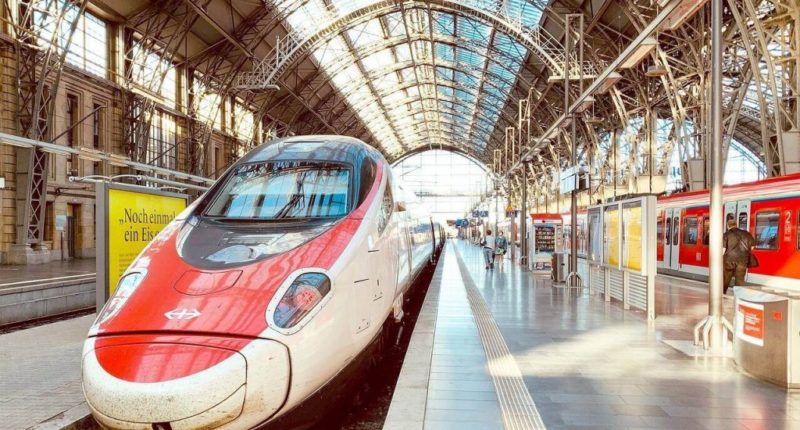The vice-president of VMRO-DPMNE Aleksandar Nikoloski, who is participating in a series of events in Brussels dedicated to the situation in Europe, asked the European Union to finance the construction of a high-speed railway from Skopje to Thessaloniki.
In his address at a session organized by the European Union and the well-known think tank organization “Friends of Europe” who chose Nikoloski as part of the so-called program “40 under 40”, Nikoloski proposed to consider re-connecting Paris and Baghdad by railway.
I’d like to talk a little about the railroad. I think it’s a great, great topic and I think we shouldn’t only talk about the EU, but we shouldn’t forget the neighboring countries, the Western Balkans. You all know the Orient Express from history. At least one of the two major world wars was fought over that region. It does not exist at this time. In theory, it exists because there is a railway. But if you, for example, try to take a train from Vienna or Budapest to Thessaloniki, it is impossible. They used to take trains from Paris and go directly to Baghdad. Unfortunately, in railways, we are now far behind what we were in the 19th century, and that is why I raise this question because it can be the opposite of high-speed rail, you can get on a train in Vienna or Budapest and in 5 hours be at sea for a holiday, it’s option A or option B, it’s the best way to reduce the pressure on ports in northern Europe. I mean, in Antwerp here or in Hamburg, because there are two big ports, which are Piraeus and Thessaloniki, which are not well used, because there is no proper infrastructure. How can this be done? There is already a high-speed rail project between Belgrade and Budapest, as well as a high-speed rail project between Budapest and Vienna. There are two high-speed railways between Athens and Thessaloniki, and what is currently missing is the high-speed railway between Belgrade, Skopje and Thessaloniki, said Nikoloski.
According to him, the construction of this infrastructure will greatly help Europe, mainly strategically, because this was the first project that China announced six years ago.




Comments are closed for this post.